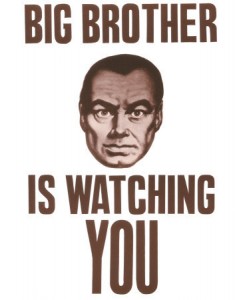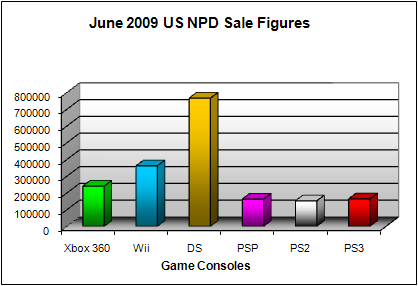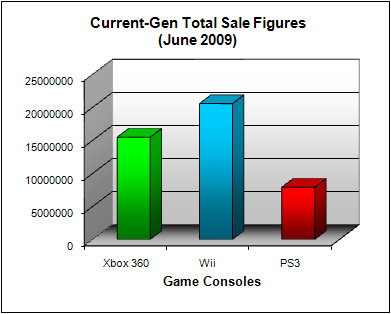Didn’t have anything interesting to write about, so no mid-week blog. But I did go back to an old article I wrote for DVD Flick and updated it for the latest version, which now supports menus and stuff. It’s now a great little tool for AVI to DVD (or any video format to DVD, really), as long as you’re not too fussed about making the menu look really customized. And best of all, it’s all free and really really simple to use. Maybe it’s just me, but more and more of the best software around are actually the free (or open source) ones. Anyway, lots to get through in the news roundup so let’s go.

In Copyright news, the week’s major talking point has been about Amazon’s SNAFU and the implications it has regarding DRM. As you may have heard, some third party reseller on Amazon sold several Orwell e-books for Kindle, but it turned out they did not have permission to do so. So what did Amazon do? They used a not so well known DRM feature of Kindle to, without the permission of the user, erase all copies of the unauthorised books off people’s Kindle devices. Without permission. Without warning. This, my friend, is DRM at its worst.
Sure, in this particular situation, the erasure was probably justified, although ironic in the extreme considering the titles that were erased (‘1984’, in particular – Big Brother must be so proud). But that’s not the point. The point is that Amazon at a moment’s notice can erase all of your purchases. Now why would they do that? They wouldn’t, not unless they want to be hit with hundreds of thousands of lawsuits all at once. But the point is that they could, and they have proved that they can this time, and there will be many similar future situation which will force Amazon or publishers to do this again. They wouldn’t be able to do the same with hard copies, and so it would be the seller or Amazon that will have to pay damages, rather than the customer who bought the item in good faith. The truth is that with these kinds of DRM, you’re not buying, you’re only renting or licensing, as you are bound by the license agreement which you agreed to when purchasing the books. Anyway, the whole thing caused quite a stir, even though this isn’t the first time Amazon has done this, but the media just loved the ‘1984’ references. Amazon’s boss had to issue a public apology. DRM again shows it’s true evilness.
DRM may still be alive on e-books and other media, but it’s pretty much dead on music. There is watermarking, which is a form of DRM, but it’s something people are willing to live with (at least those that do use the content lawfully, and not hold intentions to distribute illegally). But generally speaking, the kind of DRM that is on Kindle is dead for music, so much so that the RIAA has came out and declared DRM dead. Or did they? It made good copy so all the news agencies (and websites) ran with the story, but the actual quote was not as harsh as the headlines, but the RIAA did still admit the fact that DRM was largely gone from download services. So basically it’s dead, right?
Well, as one of our forum members pointed out, it’s not entirely dead. There are still music download services that employ DRM, but nobody really uses them, not when they can get DRM-free tracks. One new service which just launched and still uses DRM is Kazaa, the notorious file sharing service now gone legit. You can all you can eat music, but the DRM restricts playback to PCs (and a limited number of them as well), so it’s virtually useless before it is even launched. All you can eat music is good, but not if it’s limited to PCs, and as this requires DRM, it also means you’re effectively subscribing or renting the music, not purchasing. An all you can eat purchase account for DRM-free music is what the industry needs to really grow the download business. Prevent illegal sharing with watermarking and other methods, sure, but don’t make people jump through hoops just to buy something that’s less entertaining and value than many other forms of entertainment (this is why video gaming is growing at the expense of music, for example).
I guess you can see the theme of the week so far has been the difference between buying something and owning it, with all the rights associated with it, like the ability to actually not get it taken away from you without your permission, and the ability to re-sell it. That’s owning property. What DRM introduces is licensing, which is nothing new, but DRM allows licenses to be enforced strictly, such as remote erasure of the content. So the question is, is copyright anti-property? I think it is, and I think that’s been the core of the issues which people are against. Starting with DRM on DVDs, which prevented people from making backups of their DVDs, something they could do with CDs and all other media before that. And bit by bit, people’s rights are being taken away from them, and as Kindle-gate shows, companies now have the right to come into your home (in a way) and take away your purchases without your permission. People bleat on all the time about the evils of Communism in regards to the lack of personal ownership, but is this any better (or any different)?
Back to the lawsuits. The co-founders and the (ex) spokesman of The Pirate Bay have filed a lawsuit against Dutch anti-piracy agency BREIN, in response to a lawsuit filed by BREIN in which the only communication was through a Twitter tweet. BREIN apparently also accused the former TPB guys of launching denial of services attacks against their websites, which the TPB guys are counter-suing on the basis that this isn’t true and may constitute slander. They also claim that the original BREIN lawsuit continued numerous errors and should never have been filed in the first place. An agency having a better time is the Italian FPM group (where have all these groups come from, all of a sudden), which claims they have forced Mininova to remove 20,000 torrent links and many other sites to do the same. Mininova is fighting a legal battle themselves of course, and they have been hinting at trials of a system to allow torrent removals by content owners, I guess trying to prove that there is a system in place to handle piracy, and it should be up to content owners to police their own content (as otherwise, how would anyone know what belongs to whom)?

Moving on to HD news, the big rumour of the week (and as of right now, still unconfirmed), is that Toshiba is joining the Blu-ray bandwagon, which in many fanboy’s eyes will signal final and irrefutable victory over HD DVD.

64GB USB drives are already here, bigger than the biggest Blu-ray disc, and is rewritable without special hardware - could it be used for movie distribution?
I must make clear that Toshiba have not confirmed any of this, issuing a no comment which may be suggestive of some smoke, if not the fire. The question is, does this story make sense? In my opinion, yes it does. Toshiba was always unlikely to skip Blu-ray entirely, unless Blu-ray died a quick death. They make TVs and DVD players, and so Blu-ray is the natural next step for them. However, this does not mean that their focus on the post-Blu-ray technologies, such as downloads, streaming or flash memory distribution, have been abandoned. I for one feel that Toshiba getting back into the game at this time may in fact be due to the fact that these new technologies are finally mature enough for the marketplace, as seen with LG and Samsung’s Netflix integration. USB drive capacity has already exceeded that of Blu-ray, and offer better value than Blu-ray recordables even at this nacent stage. And with more and more companies launching USB thumb drive movie distribution services, this may be the right time for Toshiba to embrace Blu-ray, but also sneakily introduce these post-Blu-ray technologies through the back door and use Blu-ray to launch their own ideas about what the future of movie distribution will look like. Is it also a coincidence that the companies mentioned so far, LG, Samsung and Toshiba, as well as Microsoft with its Netflix Xbox 360 strategy, are all HD DVD proponents? And with Netflix in 9% of US homes already, thanks largely to the expansion of their online streaming service through game consoles and Blu-ray players, it shows people may be ready to start embracing online video streaming. Sure, Blu-ray quality HD streaming and downloads will have to wait another generation, waiting for the Internet infrastructure to catch up, but Blu-ray quality (and even better than Blu-ray quality) movie distribution via flash memory is already possible now.
For the short term though, 3D TV and movies are also seen as the next big thing. James Cameron’s new movie ‘Avatar’ aims to bring new 3D filming techniques and the concept of a 3D movie to mainstream audiences, to make 3D less of an optional experience, and make it *the* experience at the cinema. ‘Avatar’ is definitely the most expensive 3D movie produced thus far, there is no doubt about that. Along with the Blu-ray group trying to establish a standard for 3D Blu-ray movies, and with Nvidia joining the “game” with its GeForce 3D Vision kit, to bring 3D to the home computer, there is certainly a movement towards making 3D mainstream. But my view is that while 3D can be popular, it cannot be mainstream until one invents a technology that doesn’t require glasses. It’s just too much trouble, regardless of the payoff.
![]()
And finally in gaming, Microsoft has announced the next Dashboard update will be on August 11th, bringing a bunch of new features including better movie streaming, more avatar related content (achievements which give clothing and props sounds very interesting to me), and even games on demand. It’s not just movies that are moving to a media-less distribution method, it seems.
Sony’s PS3 Slim is rumoured to be unveiled soon as well, if the rumours are true that is. Sony will be making announcements in August, which should see either the rumours confirmed or denied. Again, there is a bit too much smoke without even a small fire at this stage. The big question will be how much cheaper will this new PS3 be? Because if it’s just the same price, then I don’t see the point.
I think that’s all the news for this week. More DRM bashing, digital distribution championing and PS3 price cut pining next week. See you then.












